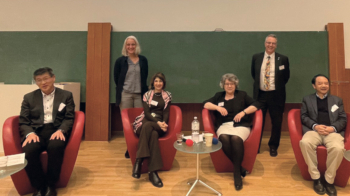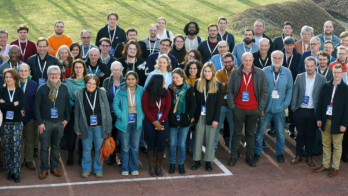On 13 February, US President Barack Obama unveiled his administration’s budget request for fiscal year 2013, which begins on 1 October 2012. The budget for the Department of Energy’s Office of Science would increase by 2.4 per cent to $4.992 billion, but high-energy physics would be reduced by 1.8 per cent to $777 million. In the next step, the two chambers of the US Congress will take up the negotiations to arrive at a final budget.
The proposed cuts in high-energy physics would hit two long-term programmes the hardest: the Long-Baseline Neutrino Experiment (LBNE) and the US R&D programme for the International Linear Collider (ILC). The budget for LBNE would drop to $10 million from $21 million in the current year. The collaboration had requested an increase to advance its plans to search for CP-violation in neutrino interactions by sending neutrinos from Fermilab to a detector in South Dakota (Steps forward for new long-baseline experiment).
Funding for the US ILC R&D programme is eliminated in the request, a cut of $20 million. While the current ILC R&D phase will end this year, the next phase would have helped to advance accelerator technologies that would benefit projects such as Fermilab’s Project X proton accelerator and Berkeley’s Next-Generation Light Source.
Some programmes would fare much better. Funding for non-accelerator physics programmes would increase by $13 million to ramp-up engineering and design efforts for the Large Synoptic Survey Telescope camera project and R&D funding for next-generation dark-matter experiments. The US contribution to the upgrades of the Belle-II detector at KEK in Japan would remain on track, along with near-term neutrino and muon research programmes at Fermilab.





